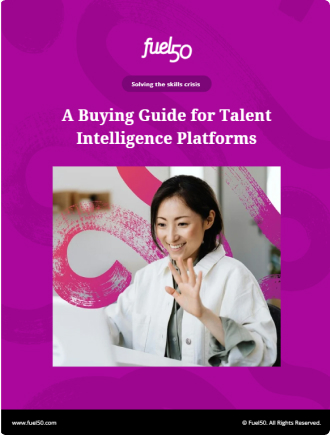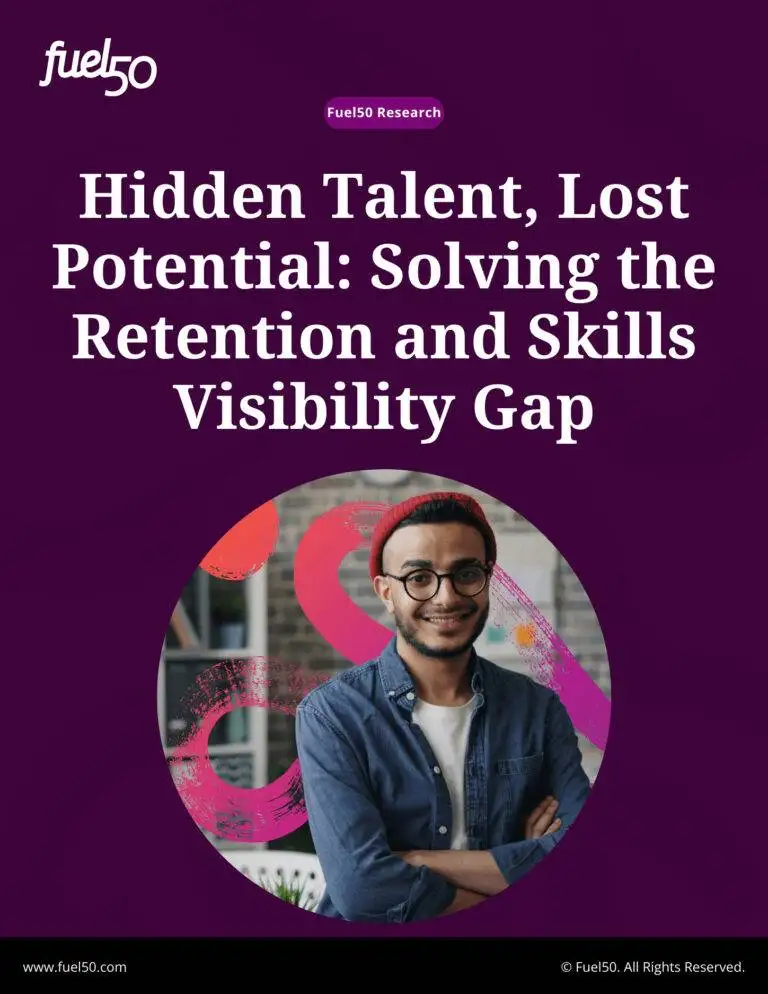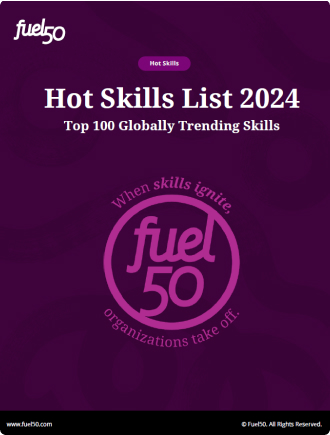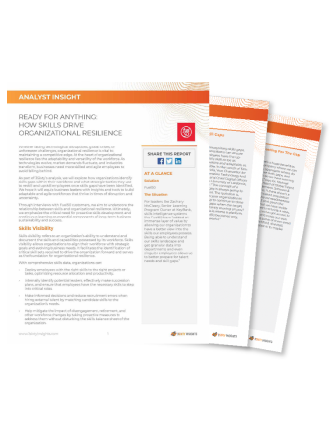The term “masterclass” — defined by the Cambridge Dictionary as “a class taught by someone who has an expert knowledge or skill in a particular area” — is frequently overused, but sometimes, you actually hear a presentation from an expert that fits the dictionary definition.
That’s how it was with Dave Ulrich’s talk on Talent … Next: How to Increase the Impact of Your Talent Initiatives, at Fuel50’s FuelX Talent Mobility Conference in April 2021.
Dave Ulrich is the Rensis Likert Professor at the Ross School of Business, University of Michigan, and a partner at the RBL Group, a consulting firm focused on helping organizations and leaders deliver value. He has also written 30 books on human resources, speaks frequently at HR and talent management conferences, and was named the most influential HR thinker of the decade by HR Magazine.
Changing how we think about talent
Not only is Dave Ulrich a major league speaker, but he packed a lot of great information into his FuelX presentation — and you will greatly benefit by taking the time to listen to his full presentation here. Dave began by making a point that resonated throughout his talk. It’s this: “We need to change how we think about talent.”
He went on to explain exactly why:
“Our people are our most important asset (but) our people are our customer’s/patient’s most important asset, too. We want our employees to feel better so our customers have a better experience. We want our people to have a great career, so our customers have a better experience.
This is a critical way for us to think. Talent matters! People are central to the business.
The link between our employees and our customers is critical. We don’t believe in talent just to make our employees feel better, but to make our employees feel better so that our customers will have a better experience. … We don’t want to just have talent mobility, so our people have a great career. We want people who have a great career so that our customers, our patients, those we serve, will have a better experience as they do business with us. That assumption is absolutely critical.”
Although Dave Ulrich’s presentation covered a LOT of ground and many important talent trends, two that jumped out are “Developing Your People” and “Managing Talent Mobility.”
3 steps to developing your people
Dave Ulrich believes that talent really matters, and that premise should also resonate with just about all managers, HR professionals, and business executives. And if talent really matters, developing that talent should be an important step in every organization. Here’s the question he believes that all of us need to answer:
“Right now, there’s a lot of attention on reskilling and upskilling. How do we go about getting our people better because the world is changing? … We’re all in the process of creating new skills, so how do we help our people get them?”
Dave listed a three-step process to make it happen:
- 50% of it is getting employees more experience — Ulrich says work experience, job assignments, special projects, and supported by one-on-one coaching and internal coaching and mentoring.
- Another 30% is about more education — Ulrich says: “Like the FuelX Conference … you’re getting education, but it shouldn’t be tourist education where you show up, you take a picture. It should be focused on solutions and action learning.”
- And the last 20% is about life experience. Ulrich says: “Am I in the talent space giving my employees not only an on-the-job assignment, matching their careers with the mobility they expect, (but) am I giving them a chance to go to training and development to give them learning solutions? Am I helping them learn from their life experience? … Life experiences are a great source of external mentors and personal growth. What we’re finding post-COVID is that education still matters. We’ve got to do the education … (but) on the job still matters more. And life experience is increasing and giving us a tool for education.”
Managing Talent Mobility
One of the things that Dave Ulrich is known for is keeping on top of cutting-edge talent trends and their impact on organizations everywhere. That’s why it’s not surprising that he has a lot to say about talent mobility. Here’s his take:
“The one (area that) Fuel50 works on is managing your career and mobility. We’ve learned in research that there’s four stages to a career, I start in stage one — learning. I become an individual contributor, a master. I become an expert at something and then I have a choice: Do I move into management? Or do I move and stay in my technical area?
Our job to manage talent mobility is to help people make that happen, to make that career choice. Where would you like to work? Do you have managerial skills to set direction to set vision to manage budgets and systems? Or are you committed in a technical way? If you’re technical, you become a mentor to others, you become a shaper definer of the field. One of the keys to talent mobility is helping people make their choice.”
That says a lot about talent mobility — and where it may be going in YOUR organization.
One last thought
Dave Ulrich is someone you can listen to all day because he not only has a lot of interesting things to say but because he also brings all sorts of great insights to the table.
With that, here is one last thought to take away that’s well worth remembering:
“Who are the employees who have the potential to go forward? That’s often 5 to 10% of your workforce. Do they have ambition? Are they willing to pay the price? Do they have ability for the future, and not just the present? Do they have drive and achievement? Are they learning agile?
Our job in talent is to make sure that we manage the careers of everyone, but especially for those employees who have high potential. We give them opportunities to grow and to learn.“













